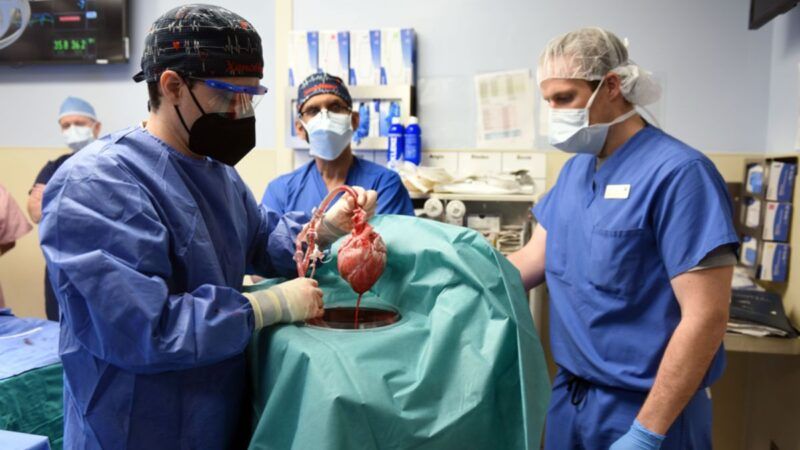Genetically Modified Pig Heart Successfully Transplanted Into a Patient
One step closer to solving the organ shortage crisis?

A pig heart has been transplanted into David Bennett, a 57-year-old patient with terminal heart disease, by researchers at the University of Maryland. The heart comes from a pig that was genetically modified so that its transplanted organs will, hopefully, avoid immune rejection. Researchers at the Virginia-based regenerative medicine company Revivicor genetically modified pigs so that they do not carry three genes that, among other things, produce the alpha-gal sugar that provokes immediate catastrophic immune rejection when their organs are transplanted into people.
In addition, Revivicor added six human genes to the pigs that prevent other complications such as blood clotting and inflammation. The Maryland researchers are also using a new compound developed by Kiniksa Pharmaceuticals designed to prevent immune rejection of transplanted organs.
Prior to installing the pig heart into Bennett, the University of Maryland researchers had successfully transplanted similarly genetically modified pig hearts into baboons, one of which lived as long as 264 days before the organ was removed for analysis.
Bennett, who did not qualify for joining the waiting list for human heart transplantation, consented to the procedure. "It was either die or do this transplant. I want to live. I know it's a shot in the dark, but it's my last choice," said Bennett in the press release.
"This was a breakthrough surgery and brings us one step closer to solving the organ shortage crisis. There are simply not enough donor human hearts available to meet the long list of potential recipients," said Bartley P. Griffith, the surgeon who transplanted the pig heart into the patient. He added, "We are proceeding cautiously, but we are also optimistic that this first-in-the-world surgery will provide an important new option for patients in the future."
Nearly 107,000 Americans are currently waiting for a transplantable organ.


Show Comments (55)